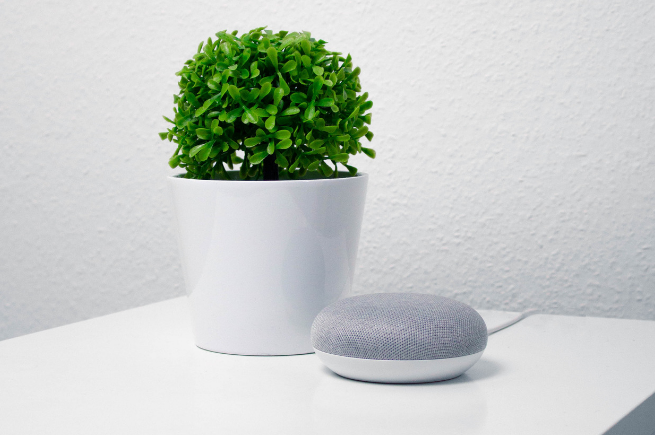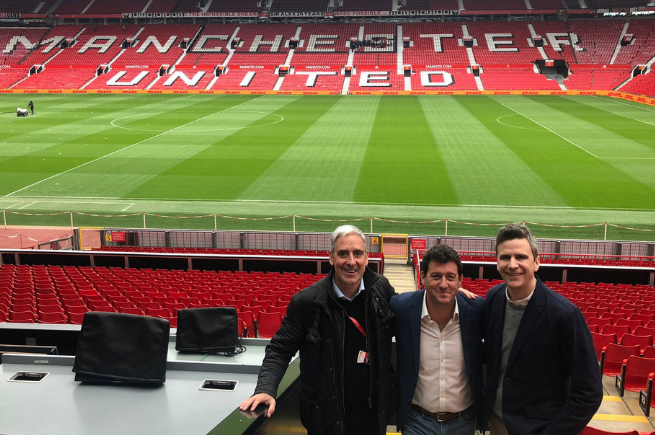Sports advertising and the future of media
Last week, Unruly CEO Norm Johnston, and our Global SVP of Data Partnerships, Sam Sherson, spoke to a packed room of brands and advertisers at the Manchester United football ground, Old Trafford on sports advertising, the future of media and Unruly’s Sports Buy-Out offering.
Here are some highlights of the talk which includes the future of live sports programming, the new stadium experience and how voice will change the way we engage with sport.
Watching the game, the battle is on!
Technology (hardware and software), viewing habits, the battle between subscriptions, pay-per-view, OTT and free-to-air, the rise of mobile, and advertising spends all play a part in the battle for a slice of the huge revenues on offer, the stakes have never been higher!
Even though people are watching more on-demand and streamed programming, content which is best watched live, such as news and sports, is able to survive and thrive.
The viewing experience of such content has perhaps grown in importance precisely because time is of the essence: recording a live football match and watching it later, for example, is the exception rather than the rule… but advertising strengthens around traditional viewing habits. Therefore, given sports fans’ preference for watching a sporting contest live, such programming remains a strong source of revenue for advertisers.
Could Amazon or any of the tech companies sweep in and seize the initiative? They have the technology. They have the audience. And they certainly have the cash. But do they have the ability?
As tech giants continued their push into live sports during 2018 – Facebook bought the rights to show top-flight Spanish football in the Indian subcontinent, with matches free to watch, and in the UK, Amazon won the rights to show 20 Premier League fixtures as part of the deal for 2019-22.
Jeff Bezos’s company – the second in the world to be valued at one trillion dollars, after Apple – had hoped its coverage of the US Open would improve on other streaming services’ problems with their delivery of live sports. It didn’t go well. Amazon received so many complaints about its coverage that the company prevented more from being posted. Poor picture quality and a lack of recording options were among the features criticised.
The stadium experience
The future of live sport isn’t just about augmenting the on-field action with new information or content. In fact, that may be the least of the changes we will see inside the stadium. Much bigger shifts in the experience are beginning to take hold, and they’re being driven by AI!

AI is already enabling companies to build more conversational ways to interact with fans in the stadium environment. The New York-based company Satisfi Labs builds AI-powered “virtual concierges” that fans can chat with online. The company built a bot for the Atlanta Braves that’s embedded in the Major League Baseball Ballpark app and can answer questions that fans have about the players and the game.
This technology is part of a growing number of so-called “chatbots” that enable fans to interact with technology using natural language processing. Increasingly, users will interact with these bots through apps they already use, such as Facebook Messenger or WhatsApp, in much the same way they interact with friends and family. You’ll add a bot as a “friend” in the app, and just send it questions and receive responses.
To date, the focus of these systems has been on one of two roles. Firstly, providing information about the team and its players such as when the next game might be or how many goals a player has scored in a season.
Secondly, in simplifying and facilitating many of the normal aspects of a fans’ experience in a stadium, such as ordering concessions or finding a free parking spot. It is in this second space where we will see the most progression as organisations look to make continuous improvements to the in-stadium experience by tapping into the wealth of data that their customers generate.
The rise of voice
The next stage for conversational interfaces is the move beyond text into the realm of voice. Virtual personal assistants (VPAs), like Apple’s Siri and Amazon’s Alexa, are becoming more advanced and more mainstream, and it’s happening quickly: “smart speakers” like the Amazon Echo are spreading faster than any other recent consumer tech product according to the research firm Canalys. Some estimates put the rate of adoption above even that seen by smartphones in the mid-2000s.

Soon, instead of turning to a chatbot on your phone to learn about a stadium, you’ll just ask your VPA, which will also know about your preferences and habits. This will lead to another major leap in the power of this technology to affect the sport experience.
At home, you will simply have to ask your assistant to book your tickets and it will be done in an instant. It will also recommend which train to get or arrange your parking spot, remind you when to leave, suggest a bar to visit before the game or ensure a beer is on order as you arrive.
The answer to any question you may have around the experience will be delivered immediately. People expect answers, whether they’re walking up to the stadium or three days before they get to the stadium; they want answers immediately.
Furthermore, because your assistant will know you and your preferences, eventually all of this may be done without you even having to ask. One possible progression from here would be for stadiums to try to build this assistance into the very infrastructure of the ground. Instead of having to pull out your phone to place a food or drink order, you could one day find in-seat Alexa devices ready to serve you. Other voice-based technology could be positioned throughout the stadium to provide directions or other information.

Click here to find out how you could stay ahead of the game with our Sports Buy-Out offering!
